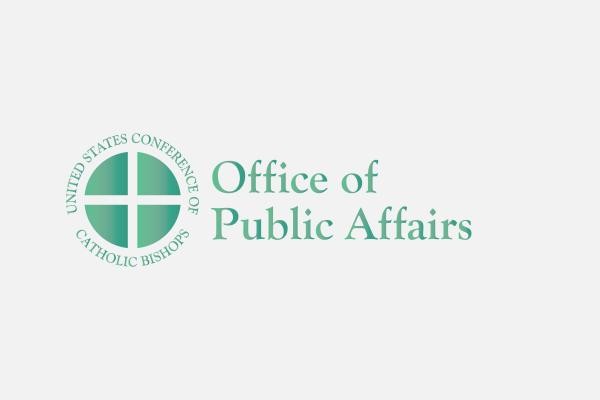Bishop Chairman Comments on Paycheck Protection Program
Following the publication of a national news story on Catholic churches receiving loans through the Paycheck Protection Program, Archbishop Paul S. Coakley of Oklahoma City, chairman of the U.S. Conference of Catholic Bishops’ (USCCB) Committee on Domestic Justice and Human Development, issued the following statement in response
WASHINGTON – Following the publication of a national news story on Catholic churches receiving loans through the Paycheck Protection Program, Archbishop Paul S. Coakley of Oklahoma City, chairman of the U.S. Conference of Catholic Bishops’ (USCCB) Committee on Domestic Justice and Human Development, issued the following statement in response:
“The Catholic Church is the largest non-governmental supplier of social services in the United States. Each year, our parishes, schools and ministries serve millions of people in need, regardless of race, ethnicity or religion. The novel coronavirus only intensified the needs of the people we serve and the demand for our ministries. The loans we applied for enabled our essential ministries to continue to function in a time of national emergency.
“In addition, shutdown orders and economic fallout associated with the virus have affected everyone, including the thousands of Catholic ministries -- churches, schools, healthcare and social services -- that employ about 1 million people in the United States. These loans have been an essential lifeline to keep hundreds of thousands of employees on payroll, ensure families maintain their health insurance, and enable lay workers to continue serving their brothers and sisters during this crisis.
“The Paycheck Protection Program was designed to protect the jobs of Americans from all walks of life, regardless of whether they work for for-profit or non-profit employers, faith-based or secular.
“Despite all of this, more than 100 Catholic schools have announced that they plan to close, with hundreds more facing an uncertain future. Businesses, hospitals, schools, and churches all across the country are facing many of the exact same problems.
“We will continue advocating for everyone negatively affected by this terrible pandemic, praying for all the sick, for all who have died and are in mourning, and especially the poor and vulnerable at this time of great need.”
Examples of the USCCB’s advocacy on COVID relief, which encompassed the needs of all of the poor and vulnerable, may be found here, here, and several letters are linked here.
###
Media Contacts:
Chieko Noguchi or Miguel Guilarte
202-541-3200

